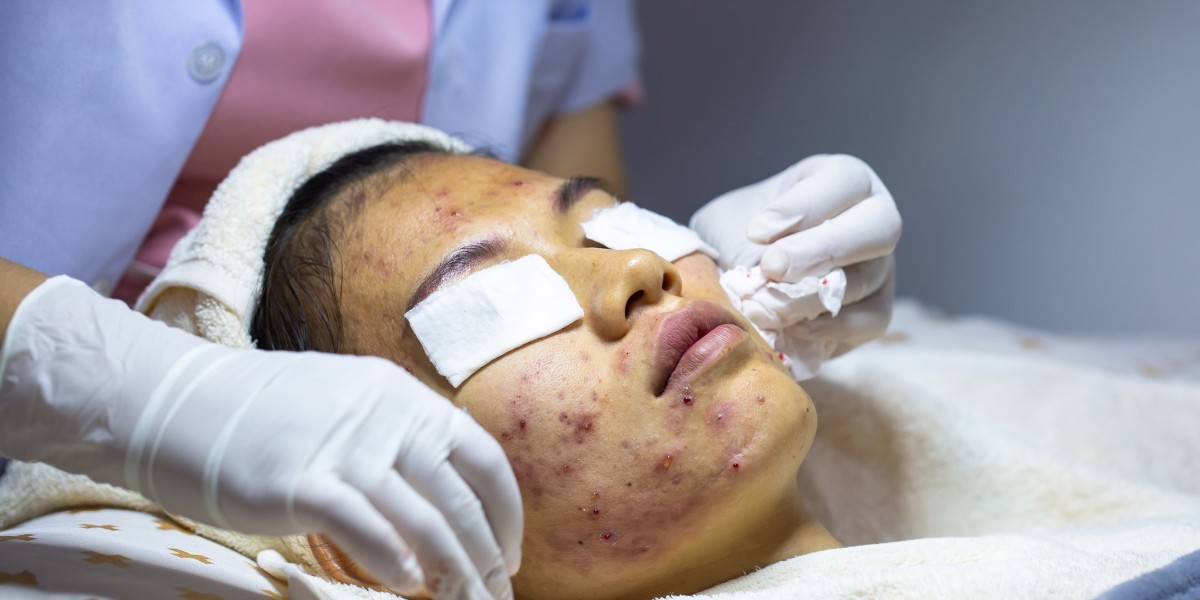Acne is more than just a skin condition—it’s a confidence killer. Whether you're a teenager dealing with hormonal breakouts or an adult still battling stubborn blemishes, acne can feel relentless. While there are countless products on the market promising flawless skin, many contain harsh chemicals that irritate sensitive skin, leaving people searching for gentler, more effective alternatives.
In this article, we’ll explore how to treat acne naturally, without relying on overly aggressive treatments. From lifestyle adjustments to time-tested skincare ingredients, this guide will help you understand how to achieve clearer skin in a more sustainable way.
Understanding the Root Causes of Acne
Before diving into treatment options, it’s essential to understand what causes acne in the first place. Acne occurs when hair follicles become clogged with oil (sebum), dead skin cells, and sometimes bacteria. Hormones, stress, diet, and certain medications can all contribute to this process.
Common types of acne include:
Whiteheads (closed clogged pores)
Blackheads (open clogged pores)
Papules (small red bumps)
Pustules (pimples with pus at the tip)
Cysts (painful lumps beneath the skin)
Understanding which type of acne you're dealing with can guide you to more effective treatment options.
Diet and Lifestyle Changes That Can Make a Difference
Your skin often reflects your overall health. Making mindful changes in your daily routine can significantly improve your complexion over time.
1. Watch Your Diet
What you eat plays a pivotal role in skin health. Diets high in sugar, dairy, and processed foods can trigger inflammation and hormonal imbalances that worsen acne.
Better Choices Include:
Leafy greens
Omega-3-rich fish like salmon
Nuts and seeds
Whole grains
Green tea
2. Stay Hydrated
Drinking enough water helps flush out toxins from your body and keeps your skin hydrated. Aim for at least 8 glasses of water daily.
3. Get Enough Sleep
Your body heals itself during sleep. Poor sleep can elevate stress hormones like cortisol, leading to more breakouts.
4. Reduce Stress
Chronic stress is a major contributor to acne. Activities like yoga, meditation, and deep breathing exercises can help balance hormones and calm your skin.
Gentle Skincare Routine for Acne-Prone Skin
The key to managing acne-prone skin is to keep it clean, moisturized, and balanced without over-stripping its natural oils.
1. Cleanser
Use a mild, sulfate-free cleanser twice daily to remove excess oil and impurities without drying out your skin.
2. Exfoliation
Gentle exfoliation 2–3 times a week can help remove dead skin cells and prevent clogged pores. Look for natural exfoliants like oatmeal or enzymes from fruits such as papaya.
3. Toning
Use alcohol-free toners with soothing ingredients like witch hazel or rose water to balance the skin’s pH.
4. Moisturizer
Yes, even oily skin needs hydration. Choose non-comedogenic moisturizers with ingredients like aloe vera, hyaluronic acid, or ceramides.
5. Spot Treatments
Natural spot treatments with tea tree oil, neem, or clay can reduce inflammation and help dry out pimples without irritating the skin.
Natural Ingredients That Work Wonders
Mother Nature provides several ingredients that are both gentle and effective for treating acne.
1. Tea Tree Oil
This essential oil has antibacterial and anti-inflammatory properties that help reduce acne-causing bacteria and soothe the skin. Always dilute it with a carrier oil before use.
2. Honey
Raw honey has natural antibacterial properties and is also a humectant, meaning it helps retain moisture. It’s great for spot treatments or as a soothing face mask.
3. Green Tea Extract
Rich in antioxidants, green tea helps reduce inflammation and regulate oil production.
4. Aloe Vera
Aloe vera gel can calm redness, speed up healing, and hydrate the skin without clogging pores.
5. Apple Cider Vinegar
When diluted, apple cider vinegar can be used as a natural toner. It has antimicrobial properties and helps balance the skin’s pH.
Alternative and Holistic Acne Remedies
For those looking beyond the usual skincare products, alternative treatments offer promising results.
1. Herbal Supplements
Supplements like zinc, evening primrose oil, and spearmint tea have been shown to balance hormones and reduce inflammation.
2. Acupuncture
This traditional Chinese therapy can help regulate the body’s internal systems, including hormones, which may positively affect acne.
3. Probiotics
Balancing your gut microbiome with probiotics can reduce inflammation and improve skin health from the inside out.
When to See a Dermatologist
If natural remedies and lifestyle changes don’t yield results after several months, or if you’re dealing with painful cystic acne, it may be time to consult a dermatologist. They can provide tailored treatments, which might include prescription medications or in-office procedures like chemical peels or laser therapy.
However, even with medical treatments, many dermatologists now incorporate holistic methods as part of a balanced acne care plan.
The Role of Sulfur in Acne Treatment
Among the more traditional ingredients still gaining popularity in natural skincare is sulfur. Often used in creams, masks, and cleansers, sulfur has natural antibacterial and keratolytic properties. It helps dry out the surface of the skin to absorb excess oil and unclog pores.
Although not as frequently highlighted as salicylic acid or benzoyl peroxide, sulfur acne treatment can be especially effective for individuals with sensitive or oily skin types. It’s a gentler alternative that works well without causing excessive dryness or irritation.
Final Thoughts: Consistency Is Key
Acne is a condition that requires patience, consistency, and a willingness to try different approaches until you find what works for your unique skin. The good news is, many people have found success by embracing a more natural, holistic skincare routine that focuses on nourishing the body inside and out.
Remember, clear skin doesn’t happen overnight—but with the right mindset and care, it’s absolutely achievable.






